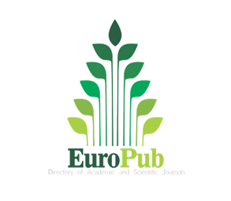On dialectical peculiarities of the Yakut traditional game «hayakh khostohor»
Views: 181 / PDF downloads: 112
DOI:
https://doi.org/10.32523/2664-5157-2021-3-65-73Keywords:
game hayakh khostohor, dialect vocabulary, semantics, Yakut language, gastronymic cultureAbstract
The article considers the dialectical unit of the lexico-thematic group, which is of
interest for study as a linguistic object in integration with materials on the traditional culture and life of the Yakuts. In the article, the author conducts a linguoculturological interpretation of the semantics
of the name of the game. The relevance of the topic is because the lexico-thematic group «Dialectical
names of Yakut traditional children’s games» had not previously been subjected to special study as
a linguistic object. The aim of the study is to identify the dialectical features of the semantic field of
the name of the Yakut traditional game “hayakh khostohor”. Research tasks: to reveal the dialectical
nature of the semantics of the name of the game; to determine the semantic connection between
general Yakut and dialect in the name of the game. The material for the research was bilingual
explanatory dictionaries of the Yakut language, records of reports of complex expeditions of the early
20th century. The research used the following methods: linguoculturological analysis of the semantic
structure of the lexeme; descriptive analysis using techniques for interpreting linguistic material. To
identify semantics, the method of semantic identification is used. As a result, the dialect aspect of
the semantic field of the name of the game “hayakh khostohor” was revealed. In the game, hayakh is
used in two meanings: 1) “fermented fish”, the source of which is mainly the Vilyui dialect zone; 2)
the title of the game defines the semantic connection of the dialect lexeme hayakh “fermented fish”
with the general Yakut lexeme hayakh ‘oil’. A playful imitation of everyday life is a representation
of two traditional occupations of the Yakuts (Sakha): cattle breeding – as a heritage from the ancient
Turkic layer of vocabulary of cattle-breeding culture and fishing – as the creation of a northern Turkic
(Yakut) gastronomic culture.
Downloads
Reference
Romanova E.N. Igry i igrovaya kul’tura [Games and gaming culture]. In: Yakuty. Saxa. Aksyanova G.A, k.b.n., Alekseev N.A., d.ist.n., prof., Antonov E.P., k.ist.n. i dr.; Executive editor: N.A. Alekseev i dr.; Ros. akad. nauk, In-t e’tnologii i antropologii im. N.N. Mikluxo-Maklaya, In-t gumanit. issled. i probl. malochisl. narodov Severa Sib. otd-niya [Russian Academy of Sciences, Institute of Ethnology and Anthropology named after N.N. Miklouho-Maclay, Institute for Humanitarian Research and Problems of Indigenous Peoples of the North, Siberian Branch.]. Moscow, Nauka, 2012. P. 419-429. [In Russian].
Dyachenko V.I. Vospitanie detej u yakutov [Raising children among the Yakuts]. In: Tradicionnoe vospitanie detej u narodov Sibiri: sbornik statej. Akad. nauk SSSR, In-t e’tnografii im. N.N. Mikluxo-Maklaya; Executive editor: I.S. Kon, Ch.M. Taksami [Traditional raising of children among the peoples of Siberia: a collection of articles // Academy of Sciences of the USSR, Institute of Ethnography named after N.N. Miklouho-Maclay; executive editor: I.S. Kon, Ch.M. Taksami]. Leningrad, Nauka, Leningradskoe otdelenie, 1988. P. 186-205. [In Russian].
Seroshevskij V.L. Yakuty. Opyt e’tnograficheskogo issledovaniya [Yakuts: Experience of Ethnographic Research]; Publ. 2. Moscow, 1993. 736 p. [In Russian].
Xudyakov I.A. Kratkoe opisanie Verxoyanskogo okruga [Brief description of the Verkhoyansk District]. Pod red. chl.-kor. AN SSSR V.G. Bazanova [edited by Corresponding Member of the USSR Academy of Sciences V.G. Bazanov]. Leningrad, Nauka, Leningradskoe otdelenie, 1969. 437 p. [In Russian].
Nikolaev E.R. Semantika nazvanij yakutskix detskix igr (na materiale dialektologicheskix slovarej) [Semantics of the names of the Yakut children’s games (based on dialectological dictionaries)]. In: Severo-vostochnyj gumanitarnyj vestnik [North-Eastern humanitarian bulletin]. 2019. No 2 (27). P. 88-93. [In Russian].
Otchet o deyatel’nosti Akademii nauk SSSR za 1927 god, sostavlennyj i.o. Nepremennogo sekretarya akademikom A.E. Fersmanom s prilozheniem otchetov otdel’nyx akademicheskix uchrezhdenij [Report on the activities of the Academy of Sciences of the USSR for 1927, compiled by acting. Indispensable secretary, academician A.E. Fersman with the attachment of reports from individual academic institutions]. In: Vol. II: Otchet o nauchnyx komandirovkax i e’kspediciyax [Part II: Report on scientific trips and expeditions]. Leningrad: Izd-vo AN SSSR, 1928. 266 p. [In Russian].
Sojkkonen I.P. Diplomnaya rabota «Yakutskie deti» [Thesis «Yakut children»]: Rukopis’, 1928. In: Sankt-Peterburgskoe otdelenie arxiva RAN [Manuscript, 1928 // St. Petersburg Branch of the Archive of the Russian Academy of Sciences]. F. 47, Inventory 2, No 157. [In Russian].
Sojkkonen I.P. Semejnyj byt yakutov Yakutskogo okruga [Family life of the Yakuts of the Yakutsk District]: Rukopis’, 1928. In: Sankt-Peterburgskoe otdelenie arxiva RAN [St. Petersburg Branch of the Archive of the Russian Academy of Sciences]. F. 47, Inventory 2, No 158, 345 sheet. [In Russian].
Sojkkonen I.P. Semejnyj byt yakutov Yakutskogo okruga. Papka 2-aya [Family life of the Yakuts of the Yakutsk District. Folder 2]: Rukopis’, 1928. In: Sankt-Peterburgskoe otdelenie arxiva RAN [St. Petersburg Branch of the Archive of the Russian Academy of Sciences]. F. 47, Inventory 2, No 159, 405 sheet. [In Russian].
Dialektologicheskij slovar’ yakutskogo yazyka [Dialectological dictionary of the Yakut language]: soderzhit svyshe 8500 slov [contains over 8500 words]. Compiled by: P.S. Afanas’ev, M.S. Voronkin, M.P. Alekseev. Moscow, Nauka, 1976. 390 p. [In Russian].
Pekarskij E.K. Slovar’ yakutskogo yazyka [Dictionary of the Yakut language]. Publ. 2. Leningrad, Izdanie AN SSSR, 1959. Vol. III. 3858 columns. [In Russian].
Fedorov A.S. Obuge’le’rbit oonn’uulara [Ancestor games]. Yakutskaj, Saxa sirine’e’ҕi kinige’ izd-vota, 1992. 43 p. [In Yakut].
Bol’shoj tolkovyj slovar’ yakutskogo yazyka [Comprehensive explanatory dictionary of the Yakut language]: V. XIII: (Bukva X) [V. XIII: (Letter X)]. Edidet by P.A. Slepcova. Novosibirsk, Nauka, 2016. 639 p. [In Yakut].
Antonov N.K. Issledovaniya po istoricheskoj leksike yakutskogo yazyka: (imennye osnovy) [Research on the historical vocabulary of the Yakut language: (nominal bases)]: special’nost’ 10.665 «Tyurk. yaz.»: Avtoref. dis. ... d-ra. philol. nauk; Akad. nauk Kaz. SSR, In-t yazykoznaniya [specialty 10.665 «Turkic languages»: the abstract of the dissertation of the doctor of philological sciences; Academy of Sciences Kaz. SSR, Institute of Linguistics]. Yakutsk, 1973. 54 p. [In Russian].
Antonov N.K. Materialy po istoricheskoj leksike yakutskogo yazyka [Materials on the historical vocabulary of the Yakut language]. Executive editor prof. I.M. Romanov; author foreword A.P. Okladnikov; Yakut. gos. un-t. Yakutsk, Yakutskoe knizhnoe izd-vo, 1971. 172 p. [In Russian].
Sbornik yakutskix poslovic i pogovorok [Collection of Yakut proverbs and sayings]. Akad. nauk SSSR, Yakut. fil. Sib. otd-niya, In-t yaz., lit. i istorii [Academy of Sciences of the USSR, Yakutsk Branch of the Siberian Branch, Institute of Language, Literature and History]; Compiled by N. V. Emel’yanov; [Responsible editor G.S. Syromyatnikov]. Yakutsk: Yakutskoe knizhnoe izdatel’stvo, 1965. 246 p. [In Russian].
Nelunov A.G. Yakutsko-russkij frazeologicheskij slovar’ [Yakut-Russian phraseological dictionary]. Novosibirsk, Izdatel’stvo SO RAN, filial «Geo», 2002. Vol. 2. 420 p. [In Russian].
Drevnetyurkskij slovar’ [Ancient Turkic dictionary]. Red. V.M. Nadelyaev i dr.; AN SSSR, In-t yazykoznaniya [Edit. V.M. Nadelyaev and others; Academy of Sciences of the USSR, Institute of Linguistics]. Leningrad, Nauka, Leningr. otd-nie, 1969. 676 p. [In Russian].
Ivanov S.A. Obshheyakutskie i dialektnye nazvaniya, otnosyashhiesya k skotovodstvu [Common Yakut and dialect names related to cattle breeding]. In: Severo-vostochnyj gumanitarnyj vestnik [North-Eastern humanitarian bulletin]. 2018. No 2 (23). P. 56-65.
Dialektologicheskij slovar’ yakutskogo yazyka: Dopolnitel’nyj tom [Sakha Dialectological Dictionary: Supplementary Volume]. Compiled by M.S. Voronkin, M.P. Alekseev, Yu.I. Vasil’ev. Novosibirsk, VO «Nauka», 1995. 296 p. [In Russian].
Bagdaryyn Sulbe’. Talyllybyt ule’le’r. 1-ky t.: Me’ne’ aattar [Selected Works. Volume 1: Sacred Names]. Dokuuskaj, Bichik, 2013. 536 p. [In Yakut].
Somogotto. Pishha yakutov (v svete sosednix kul’tur) [Food of the Yakuts (in the light of neighboring cultures)]. Yakutsk, Yakutskij kraj, 2009. [Elektronic resource]. Avialable at: https://www.yakutskhistory.net/s-i-nikolaev-somogotto/pishha-yakutov/ (Accessed: 29.06.2021). [In Russian].
Ivanov V.F. Social’no-e’konomicheskie otnosheniya v Yakutii (konec XVII-XIX v.) [Socio-economic relations in Yakutia (late 17th-19th centuries)]. Novosibirsk, VO «Nauka». Sibirskaya izdatel’skaya firma, 1992. 228 p. [In Russian].
Downloads
Published
How to Cite
Issue
Section
License
Copyright (c) 2021 Turkic Studies Journals

This work is licensed under a Creative Commons Attribution-NonCommercial 4.0 International License.
























